The Best Morocco Travel Tips
Morocco Travel Tips page. Here you’ll find loads of useful info to help get you prepared before setting off your trip
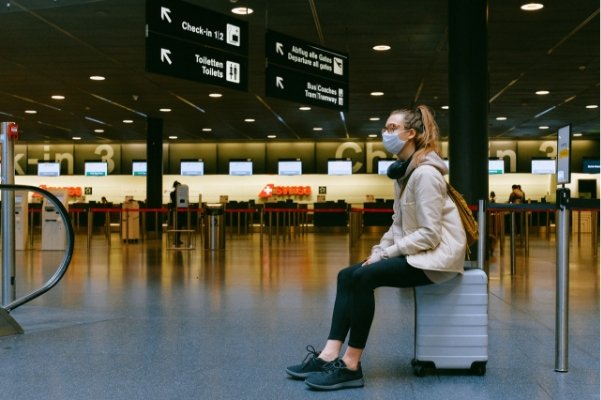
Before traveling to Morocco, Things you should know
Before traveling to Morocco, one of the first things you should know is to familiarize yourself with the cultural norms and customs of the country. Here are some key points to consider:
Religion and Respect: Morocco is a predominantly Muslim country, and Islam plays a significant role in daily life. It’s essential to respect Islamic customs and traditions. This includes dressing modestly, especially when visiting religious sites, and being mindful of prayer times and Ramadan customs if you’re traveling during this holy month.
Greetings and Interactions: Moroccan culture values hospitality and politeness. When greeting someone, it’s common to exchange pleasantries and engage in small talk before getting down to business. Handshakes are common, but it’s important to use your right hand, as the left hand is considered unclean in Islamic culture.
Language: Arabic and Berber are the official languages of Morocco, but French is widely spoken, especially in urban areas and among the educated population. English is also spoken in tourist areas, but it’s helpful to learn a few basic Arabic or French phrases to facilitate communication with locals.
Currency and Bargaining: The official currency of Morocco is the Moroccan dirham (MAD). While credit cards are widely accepted in hotels, restaurants, and larger shops, it’s advisable to carry some cash, especially for smaller purchases and in more remote areas. When shopping in souks (markets), bargaining is customary, so don’t hesitate to negotiate prices.
Food and Drink: Moroccan cuisine is diverse and flavorful, with influences from Arab, Berber, and Mediterranean cuisines. It’s customary to eat with your right hand, and meals often begin with washing hands in a communal basin. Tap water is generally not safe to drink, so stick to bottled water and avoid consuming raw fruits and vegetables that may have been washed in tap water.
Safety and Security: While Morocco is generally safe for tourists, it’s essential to remain vigilant, especially in crowded areas and tourist hotspots where pickpocketing and petty theft can occur. Avoid walking alone at night in unfamiliar areas, and be cautious of scams targeting tourists.
By familiarizing yourself with these cultural norms and practical tips, you’ll be better prepared to navigate and respect the customs of Morocco, enhancing your travel experience and fostering positive interactions with locals.
Morocco Visa Requirements
Before traveling to Morocco, it’s crucial to ensure that you have the necessary passport and visa requirements in order. Here’s what you should know:
Passport Validity: Your passport should be valid for at least six months beyond your planned date of departure from Morocco. It’s essential to check your passport’s expiration date well in advance of your trip and renew it if necessary.
Visa Requirements: The visa requirements for Morocco vary depending on your nationality and the purpose of your visit. Citizens of many countries, including the United States, Canada, the European Union, Australia, and New Zealand, can enter Morocco visa-free for tourism purposes for up to 90 days. However, it’s essential to check the specific visa requirements based on your nationality before traveling.
Entry Stamp: Upon arrival in Morocco, ensure that your passport is stamped by Moroccan immigration officials. This entry stamp serves as proof of your legal entry into the country and may be required when exiting Morocco.
Passport Copies: It’s advisable to carry photocopies of your passport’s identification page and visa (if applicable) with you while exploring Morocco. Keep these copies separate from your original passport, ideally in a secure location such as your hotel safe. In the event that your passport is lost or stolen, having copies can expedite the process of obtaining a replacement.
Travel Insurance: While not directly related to passport requirements, it’s highly recommended to have travel insurance that covers medical emergencies, trip cancellations, and other unforeseen events during your stay in Morocco. Check with your insurance provider to ensure that you have adequate coverage for your trip.
Passport Security: Always keep your passport secure while traveling in Morocco. Consider using a money belt or hidden pouch to store your passport and other valuable documents, especially in crowded or touristy areas where pickpocketing may occur.
By ensuring that your passport meets the validity requirements and understanding the visa regulations for Morocco, you can avoid any potential issues or delays during your travels and enjoy a smooth and hassle-free trip.
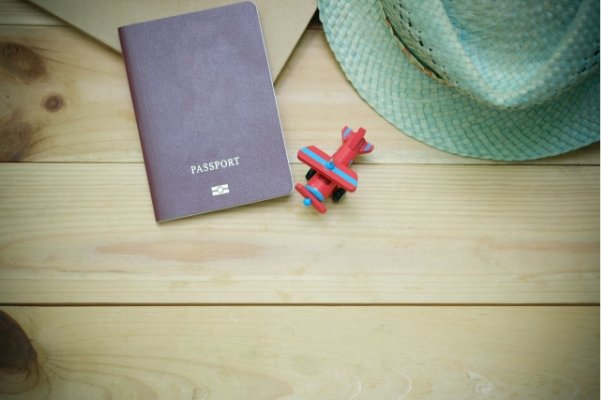

Morocco Medical Requirement
Before traveling to Morocco, it’s essential to be aware of any medical requirements or recommendations to ensure a safe and healthy trip. Here are some key considerations:
Routine Vaccinations: Ensure that your routine vaccinations, such as measles-mumps-rubella (MMR), diphtheria-tetanus-pertussis, varicella (chickenpox), and influenza, are up-to-date before traveling to Morocco. These vaccinations are recommended regardless of destination.
Hepatitis A and Typhoid: Vaccinations for hepatitis A and typhoid are generally recommended for travelers to Morocco, as these diseases can be contracted through contaminated food and water.
Hepatitis B: The hepatitis B vaccination is recommended for travelers who may have intimate contact with local residents, receive medical treatment, or engage in activities that could expose them to blood or bodily fluids.
Rabies: Rabies vaccination may be recommended for travelers who plan to spend significant time outdoors, engage in activities such as hiking or camping, or have close contact with animals. However, rabies is rare in Morocco, and the risk is generally low.
Yellow Fever: A yellow fever vaccination certificate is required for travelers over nine months of age arriving from countries with a risk of yellow fever transmission. However, Morocco itself is not a yellow fever-endemic country.
Malaria: Malaria is not prevalent in Morocco, particularly in tourist areas and major cities. However, if you plan to visit rural or remote areas, especially during the rainy season, consider taking appropriate malaria prophylaxis after consulting with a healthcare professional.
Medical Kit: Consider packing a basic medical kit containing essentials such as adhesive bandages, antiseptic wipes, pain relievers, antidiarrheal medication, rehydration salts, sunscreen, insect repellent, and any prescription medications you may need.
Travel Health Insurance: It’s advisable to purchase travel health insurance that provides coverage for medical emergencies, evacuation, and repatriation. Ensure that the policy covers activities you plan to engage in, such as adventure sports or trekking.
Food and Water Precautions: To avoid gastrointestinal illnesses, drink bottled or boiled water, avoid consuming raw or undercooked food, and peel fruits and vegetables before eating them. Stick to reputable restaurants and street vendors with high turnover rates.
Seek Medical Advice: Before traveling to Morocco, consult with a healthcare professional or travel medicine specialist to discuss your specific health needs, vaccination requirements, and any pre-existing medical conditions.
By taking these medical precautions and staying informed about potential health risks, you can enjoy a safe and healthy trip to Morocco.
Morocco Accommodations
Morocco offers a wide range of accommodations to suit various preferences and budgets, including luxury resorts, boutique riads, budget-friendly hostels, and traditional guesthouses. Here’s an overview of the types of accommodations available and how you can book them:
Types of Accommodations:
Riads: Traditional Moroccan guesthouses located within historic medinas, featuring inner courtyards, ornate tilework, and personalized service. Riads offer an authentic Moroccan experience and are often centrally located near major attractions.
Hotels: Morocco has a diverse selection of hotels, ranging from budget-friendly options to luxury resorts. You can find international hotel chains, boutique hotels, and family-run establishments in major cities and tourist destinations.
Guesthouses: Family-owned guesthouses, known as “pensions” or “auberges,” provide cozy and intimate accommodations with personalized service. These are often found in smaller towns and rural areas.
Hostels: Ideal for budget travelers and backpackers, hostels offer shared dormitories or private rooms with shared facilities. Many hostels in Morocco cater to young travelers and provide a social atmosphere for meeting fellow adventurers.
Desert Camps: In the Sahara Desert, you’ll find desert camps offering unique accommodations in traditional Berber tents. These camps provide an unforgettable experience, allowing guests to sleep under the stars and enjoy traditional meals and entertainment.
How to Book Accommodations:
Online Booking Platforms: Websites such as Booking.com, Expedia, Airbnb, and Agoda offer a wide selection of accommodations in Morocco. You can search for hotels, riads, guesthouses, and other options based on your preferences, budget, and desired location. These platforms allow you to read reviews, compare prices, and book accommodations directly online.
Hotel Websites: Many hotels and riads in Morocco have their own websites where you can view photos, check availability, and make reservations. Booking directly through the hotel’s website may sometimes offer special promotions or discounts.
Travel Agencies: If you prefer a more personalized approach, you can book accommodations through a local travel agency or tour operator. They can help you plan your itinerary, arrange accommodations, and provide assistance throughout your trip.
On Arrival: While it’s generally advisable to book accommodations in advance, especially during peak tourist seasons, you can also find accommodations upon arrival in Morocco. Many hotels and guesthouses have walk-in availability, particularly in less touristy areas.
Local Recommendations: Upon arrival in Morocco, you can ask locals or your tour guide for recommendations on accommodations. They can provide insider tips and suggestions based on your preferences and budget.
When booking accommodations in Morocco, consider factors such as location, amenities, price, and guest reviews to ensure a comfortable and enjoyable stay. Additionally, be sure to confirm booking details, including check-in/check-out times, cancellation policies, and any additional fees or taxes.

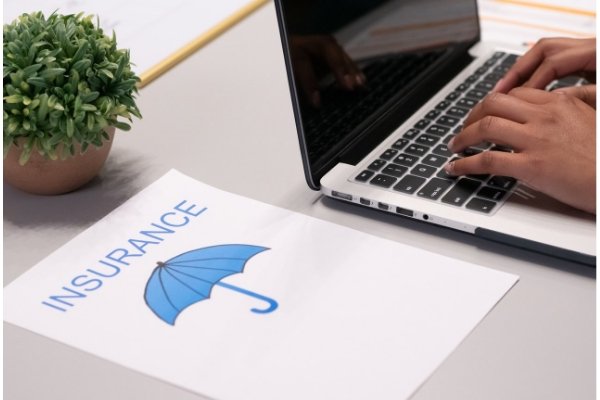
Morocco Travel Insurance
- Personal Accident
- Medical Expenses
- Loss of Luggage & Personal Effect
- Loss of Travel Documents
- Baggage Delay
- Travel Delay
- Missed Departure
- Flight Overbooked
- Hijack Inconvenience
- Travel Cancellation
- Loss of Money/ Valuables
When traveling to Morocco, it’s essential to have adequate travel insurance to protect yourself against unforeseen events and emergencies. Here’s some information about travel insurance for Morocco:
Coverage Considerations:
Medical Emergencies: Travel insurance should cover medical expenses incurred due to illness or injury during your trip to Morocco. This includes hospitalization, doctor visits, prescription medications, and emergency medical evacuation if necessary.
Trip Cancellation or Interruption: In case you need to cancel or cut short your trip due to unexpected events such as illness, injury, or a family emergency, travel insurance can reimburse you for non-refundable expenses like flights, accommodations, and tour bookings.
Lost or Stolen Belongings: Travel insurance typically provides coverage for lost, stolen, or damaged luggage and personal belongings, including passports, electronics, and valuables. Be sure to check the coverage limits and any exclusions related to high-value items.
Travel Delays or Disruptions: If your travel plans are disrupted due to unforeseen circumstances such as flight delays, cancellations, or natural disasters, travel insurance can provide reimbursement for additional expenses incurred, such as accommodation, meals, and transportation.
Emergency Assistance Services: Many travel insurance policies offer 24/7 emergency assistance services, including medical referrals, legal assistance, and travel advice. This can be invaluable in navigating unfamiliar healthcare systems and dealing with emergencies abroad.
Choosing a Policy:
Coverage Limits: Review the coverage limits, deductibles, and exclusions of the travel insurance policy to ensure it meets your needs. Consider factors such as the duration of your trip, the activities you’ll be participating in, and any pre-existing medical conditions you have.
Medical Coverage: Confirm that the policy provides adequate medical coverage for healthcare expenses, emergency medical evacuation, and repatriation to your home country if necessary. Check if there are any restrictions or requirements related to pre-existing conditions.
Adventure Activities: If you plan to engage in adventure sports or activities such as trekking, camel riding, or desert excursions, make sure your travel insurance policy covers these activities. Some insurers may offer optional coverage for adventure sports as add-ons to the standard policy.
Policy Exclusions: Read the fine print of the insurance policy to understand any exclusions or limitations, such as coverage for pre-existing medical conditions, high-risk activities, or certain destinations. Be aware of any requirements for pre-trip medical screenings or documentation.
Purchasing Travel Insurance:
Online Providers: Many insurance companies and online travel agencies offer travel insurance policies specifically tailored to international travelers. You can compare quotes, coverage options, and reviews from different providers to find the best policy for your needs.
Credit Card Benefits: Some credit cards offer travel insurance benefits as part of their cardholder perks. Check if your credit card provides coverage for medical emergencies, trip cancellation, or lost baggage when traveling to Morocco.
Specialized Providers: Consider purchasing travel insurance from specialized providers that focus on international travel and offer comprehensive coverage for medical emergencies, evacuation, and repatriation. These providers may offer more tailored policies for specific travel destinations and activities.
Travel Agents: Travel agents and tour operators may also offer assistance with purchasing travel insurance as part of your trip planning process. They can help you understand the coverage options and select a policy that aligns with your travel itinerary and preferences.
Before purchasing travel insurance for Morocco, carefully review the policy details, compare quotes from multiple providers, and ensure that the coverage meets your specific needs and concerns. Having adequate travel insurance can provide peace of mind and financial protection during your travels to Morocco.
Travel Day
Before Leaving Home:
Luggage: Pack your bags according to your travel needs, ensuring you don’t exceed the airline’s baggage requirements. Consider using lightweight and durable luggage.
Passport and Tickets: Ensure you have your passport, visas (if required), and any necessary travel documents. Keep them in a secure, easily accessible place.
Bag Identification: Mark all your bags inside and out with your name and addresses (both home and holiday destinations) to facilitate identification in case of loss.
Travel Insurance: Consider purchasing travel insurance to cover unforeseen events such as lost baggage, flight cancellations, or medical emergencies.
Weigh Luggage: Weigh your bags to ensure they comply with the airline’s baggage weight restrictions. Consider using a luggage scale at home or at the airport.
Carry-on Essentials: Pack essential items such as medications, valuables, electronics, travel documents, and a change of clothes in your carry-on bag.
On the Flight:
Hand Luggage Only: If traveling with hand luggage only, ensure compliance with airline rules regarding liquids and other restricted items.
Stay Hydrated: Drink plenty of plain water during the flight to stay hydrated and minimize the effects of jet lag. Avoid excessive consumption of tea and coffee, as they can contribute to dehydration.
Adjust Sleep Schedule: Depending on the time zone difference, adjust your sleep schedule during the flight to minimize jet lag upon arrival. Use eye masks, earplugs, and neck pillows for comfort during rest periods.
Upon Arrival:
Recheck Documents: Ensure you have all your travel documents, including passports, visas, and boarding passes, before disembarking the aircraft.
Collect Luggage: Retrieve your checked luggage from the baggage claim area and verify that all bags are accounted for and undamaged.
Transportation: Arrange for transportation to your accommodation, whether it’s a pre-booked shuttle, taxi, or rental car.
By following this checklist, you can ensure a smooth and organized travel experience, whether you’re traveling with checked baggage or opting for hand luggage only. Don’t forget to stay hydrated, get adequate rest, and take necessary precautions to minimize travel-related stress and discomfort. Safe travels!
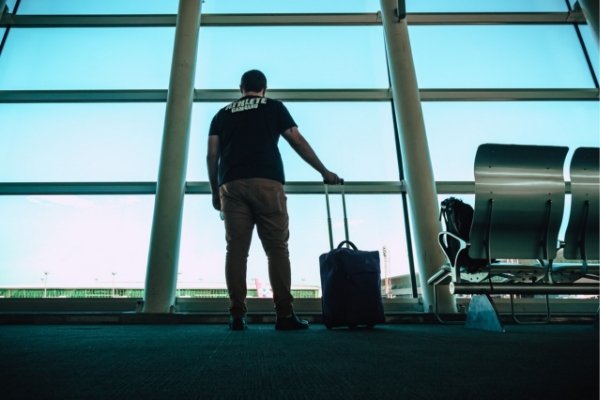
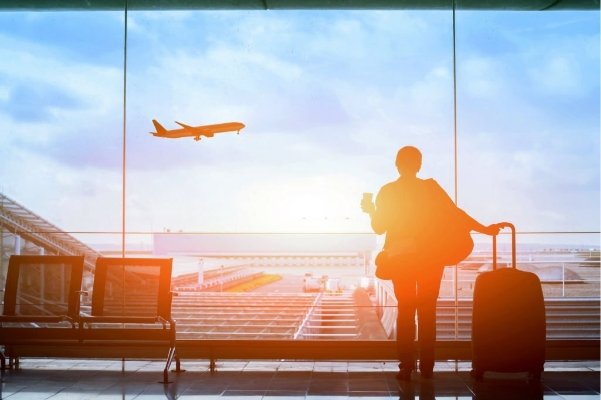
Morocco Airport
For your trip to Morocco, the choice of airport will depend on your itinerary, preferences, and travel plans. Here are some of the major airports in Morocco, along with their features and suggestions for different types of travelers:
Mohammed V International Airport (CMN), Casablanca:
- Location: Located near Casablanca, Morocco’s largest city and economic hub.
- Connectivity: It’s the busiest airport in Morocco, offering numerous international and domestic flights.
- Accessibility: Well-connected to major cities in Morocco by train, bus, and taxi services.
- Recommended for: Travelers planning to explore Casablanca, nearby cities like Rabat and Marrakech, or using Casablanca as a transit point for onward travel.
Marrakech Menara Airport (RAK), Marrakech:
- Location: Situated near Marrakech, a popular tourist destination known for its vibrant medina, historic sites, and proximity to the Atlas Mountains.
- Connectivity: Offers a wide range of international flights, especially from Europe.
- Accessibility: Located about 6 kilometers southwest of the city center, with taxis and buses available for transportation.
- Recommended for: Travelers visiting Marrakech and the surrounding region, including the Atlas Mountains, desert excursions, and nearby towns like Essaouira and Ouarzazate.
Fes-Saïs International Airport (FEZ), Fes:
- Location: Located near Fes, one of Morocco’s oldest and most culturally significant cities, known for its UNESCO-listed medina and historic landmarks.
- Connectivity: Offers international and domestic flights, primarily serving tourists and visitors to Fes and the surrounding region.
- Accessibility: About 15 kilometers south of Fes city center, with taxis and shuttles available for transportation.
- Recommended for: Travelers interested in exploring Fes, its medina, and nearby attractions such as the Roman ruins of Volubilis and the holy city of Moulay Idriss.
Agadir–Al Massira Airport (AGA), Agadir:
- Location: Located near Agadir, a coastal city known for its beaches, resorts, and outdoor activities.
- Connectivity: Offers international and domestic flights, particularly from European destinations.
- Accessibility: About 25 kilometers southeast of Agadir city center, with taxis and buses available for transportation.
- Recommended for: Travelers seeking a beach vacation, water sports enthusiasts, and those interested in exploring Agadir and nearby attractions such as the Souss-Massa National Park.
Tangier Ibn Battouta Airport (TNG), Tangier:
- Location: Located near Tangier, a historic port city known for its strategic location at the entrance to the Strait of Gibraltar and its cultural heritage.
- Connectivity: Offers international flights, particularly from Europe, and domestic connections.
- Accessibility: About 15 kilometers southwest of Tangier city center, with taxis and buses available for transportation.
- Recommended for: Travelers visiting Tangier, exploring the northern coast of Morocco, and taking ferry connections to Spain or exploring the nearby Spanish enclaves of Ceuta and Melilla.
Ultimately, the choice of airport for your trip to Morocco will depend on factors such as your planned itinerary, destinations of interest, and flight availability. Consider which airport offers the most convenient access to your desired destinations and attractions within Morocco.
Pre-book your checked baggage to save money and time. Each piece/item of checked baggage has to weigh less than 30kg. Guests may not combine their checked baggage weight with other guests unless travelling in the same booking.
For, baggage drop counter, it opens 3 hours before the scheduled time of departure and closes 45 minutes before the scheduled time of departure. Guests are required to hold a boarding pass to use our baggage drop counters.
Bringing liquids are subject to the prevalent applicable local laws and regulations guests may take liquids on board in their cabin baggage with a maximum volume of 100 ml. The items must be placed in a transparent, re-sealable plastic bag.
For boarding time, guests are required to be at the boarding gate at least 20 minutes before the scheduled time of departure or you will be denied boarding.
Self-Drive Travel Reminders
Car Essentials:
GPS System and Maps: Ensure you have a reliable GPS system and local maps in the car for navigation, as GPS signals can sometimes be unreliable in remote areas.
Liquids and Snacks: Pack enough water and snacks for the journey, especially for long stretches without rest stops. This ensures you stay hydrated and energized throughout the trip.
Umbrellas: Carry umbrellas in case of unexpected light drizzles or rain showers during the journey.
Full Tank of Gas: Keep your car’s fuel tank topped up, and refill before it reaches a quarter tank to avoid running out of gas in remote areas with limited petrol stations.
Safety Precautions:
Drive Before Dark: Aim to reach your destination before dark, especially if traveling through rural areas with minimal street lighting. This improves visibility and reduces the risk of accidents.
Insurance Coverage: Purchase comprehensive insurance coverage for the driver and passengers to protect against accidents, injuries, and unforeseen events during the journey.
Entertainment and Comfort:
- Games and Books: Plan entertainment for passengers, especially children, by packing games, short storybooks, or sing-along rhymes to keep them engaged during the journey.
Additional Tips:
Emergency Kit: Pack an emergency kit containing essentials such as a first-aid kit, flashlight, spare batteries, blankets, and a multi-tool in case of breakdowns or emergencies.
Roadside Assistance: Consider subscribing to a roadside assistance service that can provide help in case of vehicle breakdowns, flat tires, or other mechanical issues.
Regular Breaks: Take regular breaks during the journey to stretch your legs, rest, and refresh. Plan stops at scenic viewpoints, rest areas, or local attractions along the route.
By following these additional tips, you can ensure a safe, comfortable, and enjoyable road trip experience for you and your passengers. Remember to prioritize safety, stay prepared for emergencies, and make the journey as enjoyable as possible with entertainment and refreshments.

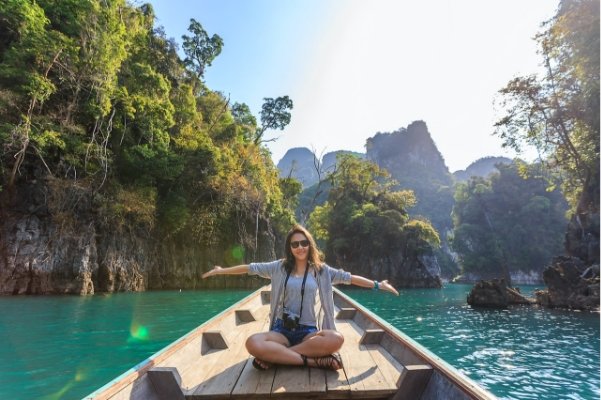
On Holiday
When you are overseas/ holiday destination, do call your close relatives/ friends to let them know you have arrived safely and keep them updated of where you are if you are moving around. Make sure to always keep your luggage locked when leaving them behind in the hotel. Carry your passport with you and ensure you don’t carry excessive cash that might attract attention. If you are taking a self drive holiday, make sure you collect the car from the airport and get a GPS.
When you are abroad and if you want to try something local, make sure it is a recommendation from a trustworthy source. To make life easier, get a local map and identify the tourist info centres. Moreover for safety precautions, avoid walking alone at night or in dark areas and beware of pickpockets whose modus operandi is by distracting you. Also, if you drive, follow the local traffic rules and avoid driving at night.
Before Leaving Your Destination:
Confirm Flight Details: Check your flight status for any delays or cancellations, and confirm the departure time and terminal. Stay updated with notifications from the airline.
Prepare Travel Documents: Ensure all necessary travel documents, including passports, visas, boarding passes, and identification, are readily accessible for check-in and security screening.
Pack Strategically: Plan your packing carefully to accommodate any souvenirs or purchases made during your trip. Avoid last-minute shopping that could result in excess baggage fees or difficulty fitting items into your luggage.
Luggage Requirements: Review the luggage requirements and restrictions of the country you’re visiting to avoid any issues during check-in and security screening.
Coordinate Airport Pick-Up: Make arrangements for airport pick-up with friends or family members, or consider booking transportation services in advance.
Secure Valuables: Keep track of your valuables, including wallets, passports, cameras, watches, and jewelry. Ensure they are securely stowed in your carry-on luggage or on your person.
Departure Day:
Arrive Early: Arrive at the airport at least two hours before your scheduled departure time (or 3-4 hours in some countries) to allow ample time for check-in, security screening, and boarding procedures.
Check-In: Proceed to the airline’s check-in counter or use online check-in if available. Have your travel documents and identification ready for verification.
Security Screening: Follow security procedures and regulations, including removing liquids, electronics, and outerwear for screening. Be prepared to comply with any additional security measures in place.
Gate Arrival: Once through security, proceed to your designated departure gate and monitor flight announcements for any updates or changes.
Final Boarding Call: Listen for final boarding announcements and ensure you’re at the gate well before the boarding time to avoid missing the flight.
By following these steps, you can ensure a stress-free and organized return journey, from confirming flight details to navigating airport procedures and boarding your flight on time. Safe travels!